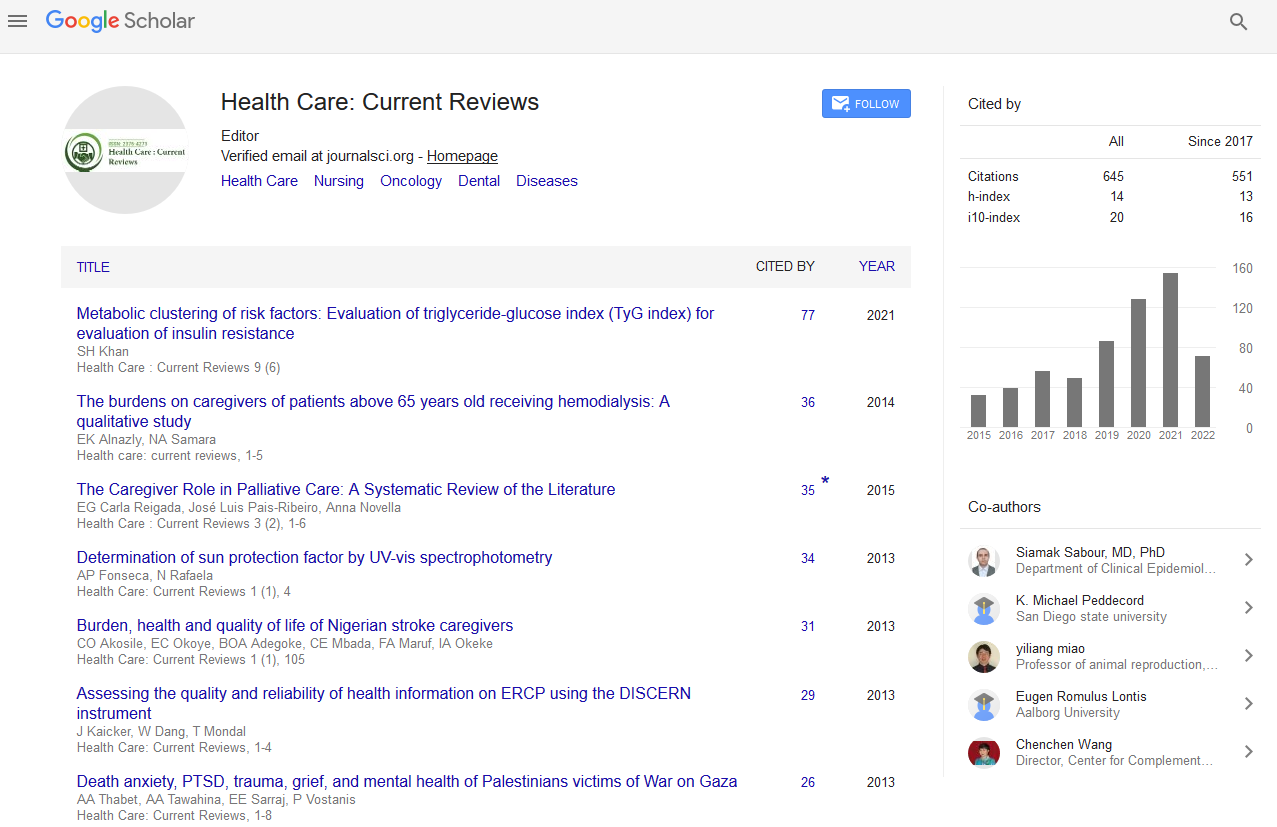PMC/PubMed Indexed Articles
Indexed In
- Open J Gate
- Academic Keys
- RefSeek
- Hamdard University
- EBSCO A-Z
- Publons
- Geneva Foundation for Medical Education and Research
- Google Scholar
Useful Links
Share This Page
Journal Flyer

Open Access Journals
- Agri and Aquaculture
- Biochemistry
- Bioinformatics & Systems Biology
- Business & Management
- Chemistry
- Clinical Sciences
- Engineering
- Food & Nutrition
- General Science
- Genetics & Molecular Biology
- Immunology & Microbiology
- Medical Sciences
- Neuroscience & Psychology
- Nursing & Health Care
- Pharmaceutical Sciences
Antimicrobial resistance in enterobacteriaceae: What is new from my center?
3rd Indo-Global Summit & Expo on Healthcare
October 05-07, 2015 New Delhi, India
K N Prasad
Sanjay Gandhi Postgraduate Institute of Medical Sciences, India
Scientific Tracks Abstracts: Health Care: Current Reviews
Abstract:
16S rRNA methyltransferases (16S RMTases) and New Delhi metallo-beta lactamases (NDMs) are the emerging mechanisms of resistance. We investigated 16S RMTases (armA and rmtA-E) conferring high level aminoglycoside resistance and NDMs among different Enterobacteriaceae species. High level aminoglycoside resistance was transferred to recipient Escherichia coli by electroporation from isolates that were negative for known 16S RMTase genes. Cloning and subsequent sequencing identified novel methyltransferase gene, rmtF on ~4.6 kb DNA fragment. Primers developed based on sequence analysis were applied to all aminoglycoside resistant strains and novel rmtF was identified. RmtF-bearing strains were further characterized for blaNDMs. blaNDMs were expressed in E. coli and carbapenem hydrolyzing abilities were determined. High-level aminoglycoside resistance was detected in 205 (14%) of 1464 isolates. ArmA, RmtB, RmtC and novel rmtF were identified in 46%, 20%, 27% and 24.4% isolates respectively; 59% 16S RMTases-bearing strains possessed blaNDM. Total 57 blaNDM positive isolates were sequenced; 13 strains that differed from blaNDM-1 were termed as NDM variants. Distributions of NDM variants were NDM-5 in two, NDM-6 in eight and NDM-7 in three isolates. blaNDM, 16S RMTases and blaAmpC were also found located on the same plasmids of >100 kb in different combinations. blaNDM expressed in E. coli showed carbapenem resistance in the following order: NDM-7>NDM- 5>NDM-6=NDM-1. The study suggests that the molecular epidemiology of 16S RMTases and NDMs in Enterobacteriaceae is rapidly evolving. High prevalence of RmtF and other 16S RMTases in association with NDM and other resistance genes on the same plasmid are the emerging threat to human health.
Biography :
K N Prasad has completed his MD in January 1987 from Banaras Hindu University. He is currently a Professor of Microbiology at Sanjay Gandhi Postgraduate Institute of Medical Sciences, a premier tertiary care hospital in North India. He has guided 14 PhD and 8 MD students and successfully completed 15 research projects funded by different agencies. He has published more than 175 papers, mostly in reputed international journals and has been the recipient of several awards by different Academic and Scientific Societies. He is a Fellow of National Academy Medical Sciences, India and Indian Academy of Tropical Parasitology.
Email: kashinprasad@gmail.com


